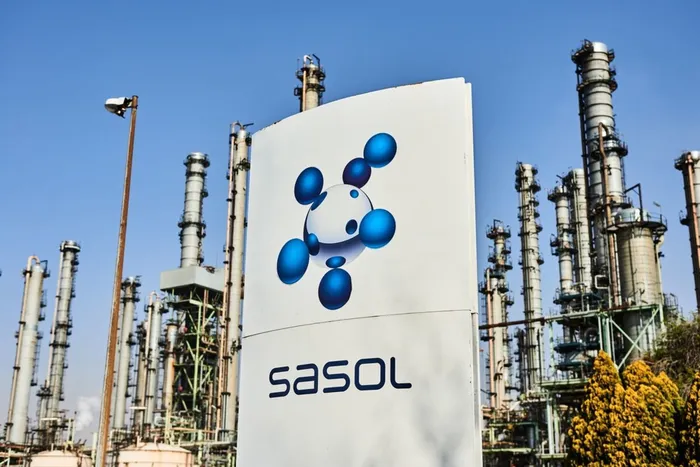Just Share urges investors to oppose Sasol's climate resolution at AGM
INDUSTRIAL

Sasol said its emissions reduction targets reflect ongoing efforts to decarbonise operations through a portfolio of mitigation levers, including process efficiency improvements, renewable energy integration, and low-carbon technology deployment.
Image: Supplied
Just Share, a shareholder activism group, says it recommends that investors vote against Sasol’s “say on climate” shareholder resolution at the fuels-from coal and chemicals group’s November 14 annual general meeting, but Sasol has staunchly defended its emissions roadmap.
Just share said Thursday that there remain “multiple significant questions” about the feasibility and robustness of Sasol’s “optimised Emission Reduction Roadmap" (ERR) that it released at its Capital Markets Day in May this year - the ERR will achieve the same 30%-by-2030 emission reduction targets to which it committed in 2021, at a reduced cost.
Just Share said most of Sasol’s emissions were from the Secunda Operation’s coal-to-liquid process and “offsetting” emissions did not prevent harm from burning fossil fuels. Broadly, Sasol intended to raise production as well as “offset” increased emissions through renewable energy investments and carbon offsets, the organisation said.
Just Share also raised concern that following this year’s AGM, shareholders will not be able to express their opinion on the climate change strategy again until 2028, unless the strategy is materially changed,
It said Sasol also continued to refuse to table shareholder proposed resolutions at its AGM’s - this year it had refused to put a resolution co-filed by Just Share and Aeon Investment Management.
The resolution had called for an independent third-party report on the external costs of the climate and air pollution impacts of Sasol’s Secunda Operations, in particular, mortality and health impacts for the most vulnerable populations affected by its operations.
Sasol said in response to BR questions however that its emissions reduction targets reflect ongoing efforts to decarbonise operations through a portfolio of mitigation levers, including process efficiency improvements, renewable energy integration, and low-carbon technology deployment.
Its management had considered the impact of these 2030 targets on a number of key estimates within the annual financial statements. In addition to these disclosures on their website, group GHG (greenhouse gas) performance was disclosed in Sasol’s Integrated Report, which includes performance against our 2030 targets, it said.
Responding to the question about resolutions proposed by shareholders, Sasol said that in terms of company law, shareholders were not entitled to give directions or instructions to the directors, in relation to their management of the company’s affairs.
Underlining this point, it said: “We also noted some proxy advisors have recommended an abstention on the non-binding climate strategy. Their rationale is that allowing shareholders to vote on climate strategy would essentially allow the board to seek shareholder approval on an important aspect of corporate strategy, through an up/down vote, thus removing some level of accountability from directors." In addition, two shareholders needed to be the proposers of a non-binding resolution, at an AGM.
“Sasol’s roadmap emphasises resilience in a low-carbon future, aligning with SDG 13 (Climate Action). Renewables, primarily solar and wind, are positioned as key enablers to reduce Scope 1 and Scope 2 emissions by replacing coal-based and gas-based electricity with clean energy used by our operations,” the group said.
It said this transition supported Sasol’s net-zero ambition and the achievement of South Africa’s decarbonisation targets. The roadmap includes renewable energy projects with permits secured and grid connections expected by late 2025. These projects would supply green electricity to Sasol’s Secunda and other facilities, reducing reliance on Eskom’s grid.
Just Share said that a failure by Sasol to consider and integrate all risks and costs that it faces may place investor capital at substantial risk, and it maintained that Sasol had failed to produce a clear and credible transition plan, had doubled down on its commitment to fossil fuels, and was not on track with various of its commitments.
BUSINESS REPORT